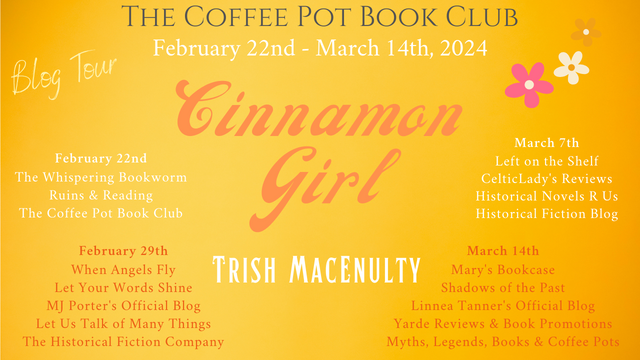
14 Mar Trish MacEnulty Cinnamon Girl #HistoricalYA #ComingOfAge #HistoricalFiction #YAFiction @pmacenulty @cathiedunn
FEATURED AUTHOR: TRISH MACENULTY
I‘m delighted to host Trish MacEnulty again as the featured author in The Coffee Pot Book Club Blog Tour being held between February 22nd — March 14th, 2024. Trish MacEnulty is the author of the Historical Fiction, Cinnamon Girl, released by Livingston Press on September 11th, 2023 (311 pages)
Below are highlights of Cinnamon Girl, Trish MacEnulty’s author bio, and her fascinating guest post about the historical background of the politically charged Vietnam War era.
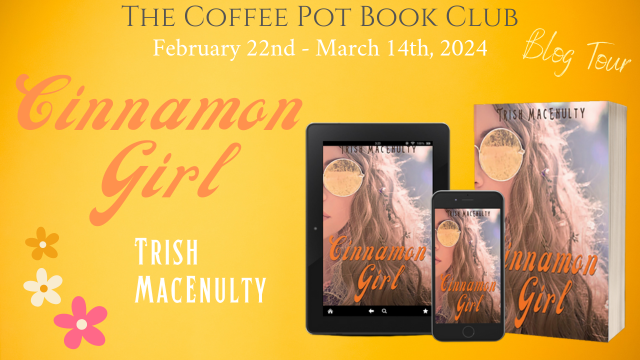
Tour Schedule Page: https://thecoffeepotbookclub.blogspot.com/2024/01/blog-tour-cinnamon-girl-by-trish-macenulty.html
HIGHLIGHTS: CINNAMON GIRL
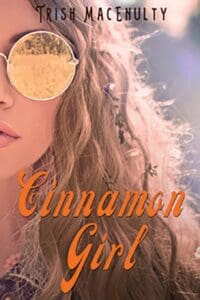
Cinnamon Girl
by Trish MacEnulty
Blurb:
Winner of the Gold Medal in YA Fiction from The Historical Fiction Company!
When her beloved step-grandmother, a semi-retired opera singer, dies of cancer in 1970, 15-year-old Eli Burnes runs away with a draft-dodger, thinking she’s on the road to adventure and romance. What she finds instead is a world of underground Weathermen, Black Power revolutionaries, snitches and shoot-first police.
Eventually Eli is rescued by her father, who turns out both more responsible and more revolutionary than she’d imagined. But when he gets in trouble with the law, she finds herself on the road again, searching for the allies who will help her learn how to save herself.
“The book is a fantastic read: fast-moving, full of smoothly woven historical detail and rich characterizations, all told in Eli’s appealing voice.” — Sarah Johnson, Reading the Past
Buy Links:
Universal Buy Link: https://books2read.com/u/3Ldonw
AUTHOR BIO: TRISH MACENULTY

Trish MacEnulty is the author of a historical novel series, literary novels, memoirs, a short story collection, children’s plays, and most recently, the historical coming-of-age novel, Cinnamon Girl (Livingston Press, Sept. 2023). She has a Ph.D. in English from the Florida State University and graduated Magna Cum Laude from the University of Florida. She currently writes book reviews and features for the Historical Novel Society.
She lives in Florida with her husband Joe and her two tubby critters, Franco and Tumbleweed. More info at her website: trishmacenulty.com.
Author Links:
Website: https://trishmacenulty.com
Twitter: https://twitter.com/pmacenulty
Facebook: https://www.facebook.com/profile.php?id=100055362621397
Instagram: https://www.instagram.com/trishmac_historicalfiction/
Book Bub: https://www.bookbub.com/authors/trish-macenulty
Amazon Author Page: https://www.amazon.com/stores/Trish-MacEnulty/author/B01G4A797G
Goodreads: https://www.goodreads.com/author/show/15085884.Trish_MacEnulty
GUEST POST: TRISH MACENULTY
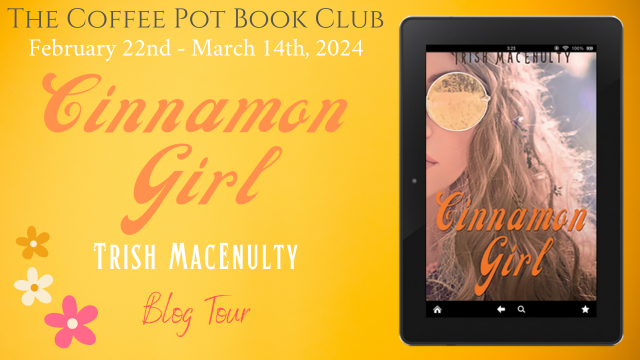
Like my protagonist Eli Burnes in Cinnamon Girl, I was a teenager in the early 1970s. I remember it as a time of idealism, community, and hopefulness in spite of terrible things going on in the world.
One of those terrible things was the Vietnam War. Young men were sent overseas by the thousands to fight in the jungles of a small country that had not harmed us. This wasn’t the sort of war most young people could support. It had taken the bombing of Pearl Harbor to convince the U.S. to join the allies in World War II. When that happened, the whole country was willing to accept sacrifices in order to stop our enemies. Some guys even lied about their age so they could join up. But I can’t remember a single boy in high school saying he couldn’t wait to go fight in Vietnam. Most of them were praying for a high draft number so they wouldn’t get called up to fight and then come home in a body bag.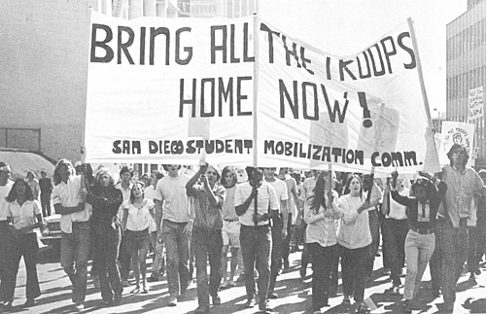
University of San Diego students holding sign saying “bring all the troops home now!”
Feelings about the war brought a lot of young people together, but the war wasn’t the only thing that brought people together. Racism was another issue that angered many young people, especially college students. In the 60s, our television sets showed sheriff’s deputies in Birmingham sic German shepherds on Black protestors. Newspapers published images of people in Selma being beaten simply because they wanted to vote. People had heard the inspiring speeches of Martin Luther King, Jr. and many of them — white and black — were devastated by his assassination.
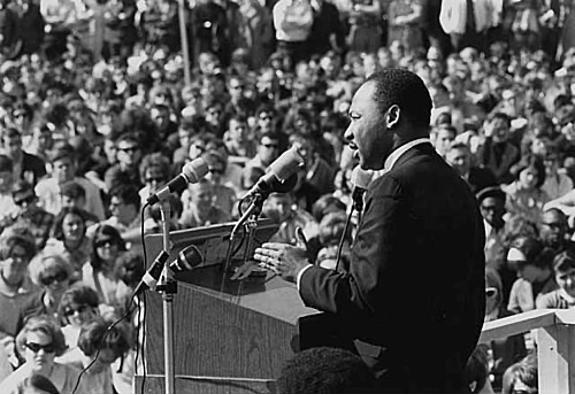
Martin Luther King Jr. speaking to an anti-Vietnam War rally at the University of Minnesota, St. Paul on April 27, 1967
There was a sense, in spite of all this injustice, that regular people could create change. Some things did change. The U.S. finally got rid of the draft. The voting age was lowered to 18. Universities changed their curricula to offer Black studies, Women’s studies, and other courses that had never been offered before. Laws were enacted to offer equal opportunities for all races. And women finally won the right to reproductive choice.
Of course, now, we see some of those early gains being rolled back. I suppose it’s natural. When progress happens, there are always those who want to take it back to the way it was before. They’re afraid of losing power or privilege. So a whole new generation has a whole new set of problems on its hands, even if some of those problems were the same ones young people faced in the 70s.
Cinnamon Girl is about a teenage girl who is a lot like other teenage girls. She wants friends, she wants a boyfriend, she loves her music. At first, she’s mostly unaware of the important societal issues of the time. Little by little, she learns about the war, about racism, and about the underhanded tricks the government used to squash protest. She also sees the conflicts in the peace movement itself and the mistakes that even well-meaning people make. In the end, however, she has hope for a better world.
I’ve been inspired by the abolitionist movement of the 19th Century, the women’s suffrage movement in the early part of the 20th Century and the Civil Rights Movement in the 1950s and ‘60s. I hope that people today might be inspired as well by the Peace Movement of the 1970s. Those activists made their share of mistakes, but they had a hopefulness and an energy necessary to effect change. To me the biggest lesson is that idealism isn’t a bad thing. In fact, idealism can help us create the world we want, not just try to destroy the world we don’t want.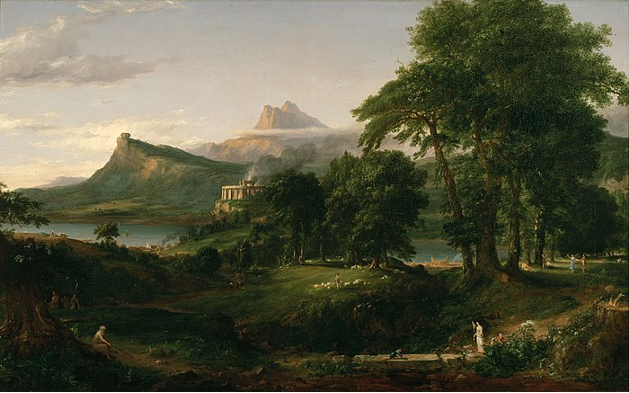
The Arcadian or Pastoral State, second painting in The Course of Empire, by Thomas Cole
*All photos, courtesy of Wikimedia Commons.

Instagram Handle: @thecoffeepotbookclub


Cathie Dunn
Posted at 08:12h, 14 MarchThank you for hosting Trish MacEnulty today, with such an interesting post.
Take care,
Cathie xo
The Coffee Pot Book Club
Linnea Tanner
Posted at 20:13h, 14 MarchHi Cathie–It was my pleasure to host Trish MacEnulty and her novel, “Cinnamon Girl.” As a baby boomer, I could relate to the late 1960’s which was both tumultuous and revolutionary in the steps taken to assure equal rights for everyone. It frustrates me that we’ve taken a step back on women’s reproductive rights and social equity with rulings handed down by the Supreme Court the last few years.